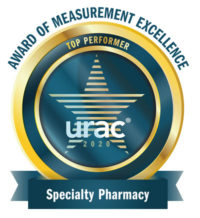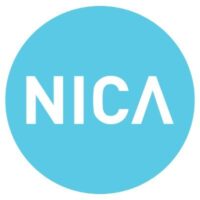By Shane Reeves, Chief Executive Officer

Former First Lady Betty Ford, a breast cancer survivor, helped kick off the first Breast Cancer Awareness Month in 1985—back when the disease was not publicly discussed. Since then, Breast Cancer Awareness Month has increased awareness of the disease, promoted early detection and screening, raised funds for research, and provided education about breast cancer prevention and treatment.
Early Detection and Screening
Mammograms and breast self-examinations play crucial roles in the early detection and fight against breast cancer.
Mammograms can detect breast cancer up to two years before a lump can be felt, allowing for earlier treatment and better chances of survival. Screening mammography has been shown to reduce breast cancer deaths by approximately 30% among women ages 40 to 74.
Mammograms can locate microscopic cancers before you or your doctor can feel or notice them. Early detection through regular mammography improves the chances of breast conservation, reducing the need for mastectomies. And thankfully, most insurance plans cover screening mammograms for women over 40 every one to two years.
A significant number of breast cancers are initially detected by patients themselves. In one study, 96% of cancers resulted from patient-identified lumps. Regular self-exams help women become familiar with how their breasts usually look and feel, making it easier to detect changes.
New Screening Recommendations
It’s now recommended that women with average risk for breast cancer should begin biennial mammogram screening at age 40, continuing through age 74, a change from their previous recommendation of starting at age 50. Women at higher risk for breast cancer (due to family history, genetic factors, etc.) may need to start screening earlier or more frequently.
Traditional Breast Cancer Treatments
The specific treatment plan depends on factors like the cancer stage, tumor characteristics, and patient preferences. Surgery and radiation focus on treating the breast area, while chemotherapy, hormone therapy and targeted therapies are systemic treatments that can reach cancer cells throughout the body.
Hormone therapy treats hormone receptor-positive breast cancers by blocking hormones that fuel cancer growth. Treatments include Tamoxifen®, aromatase inhibitors, and ovarian suppression drugs.
New Treatments for Breast Cancer Subtypes
HR-negative breast cancer refers to breast cancer that is hormone receptor-negative. HR-negative breast cancer cells do not have receptors for the estrogen or progesterone hormones on their surface. Therefore, they do not respond to hormone therapy. About 20-30% of breast cancers are HR-negative. These cancers tend to grow faster than HR-positive cancers, are often more aggressive, and are more common in younger women and premenopausal women. However, they are less likely to recur many years after initial treatment than HR-positive cancers.
Triple-negative breast cancer is a type of HR-negative cancer that is also HER2-negative. HER2-positive/HR-negative is another subtype.
Although HR-negative breast cancers can be more challenging to treat, advancements in cancer therapies have improved outcomes for many patients with this type of breast cancer. Two recent infusion therapies available through TwelveStone Health Partners are:
Enhertu®, approved in 2022 for HER2-low metastatic breast cancer and HER2-positive breast cancer, is an antibody-drug conjugate that targets HER2 proteins in cancer cells and is administered every three weeks.
Trodelvy®, previously approved for triple-negative breast cancer, was approved in February 2023 for HR-positive, HER2-negative metastatic breast cancer. It is an antibody-drug conjugate that targets Trop-2 proteins and is administered every 21 days.
These newer therapies represent advancements in targeted treatments, especially for specific subtypes of breast cancer that previously had limited options, reflecting the trend towards more personalized treatment approaches in breast cancer.
Fighting any chronic condition is a journey. TwelveStone is by our patients’ side every step of the way.















